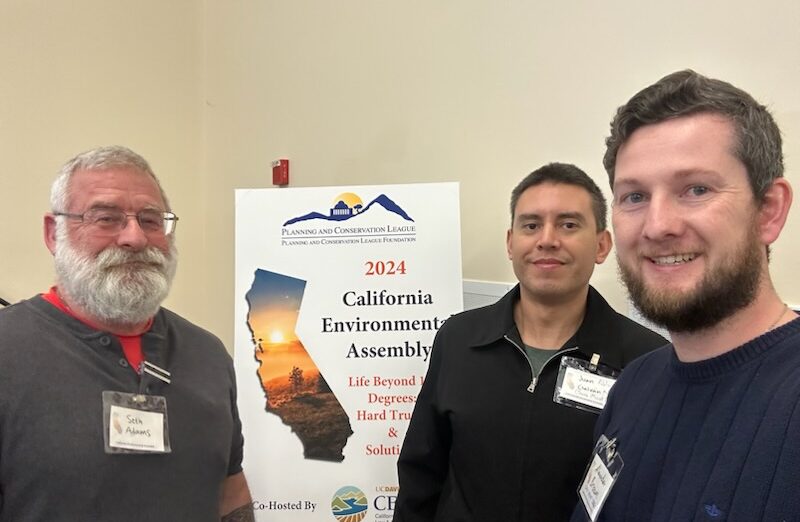
The 2024 California Environmental Assembly, hosted by the Planning and Conservation League (PCL), convened on January 27, 2024, at UC Davis School of Law’s King Hall.
Themed “Life Beyond 1.5 Degrees: Hard Truths and Solutions,” the assembly provided a platform for policymakers, NGOs, and other stakeholders to delve into pressing environmental issues facing California.
Water Track
One area of focus was water management, with two panels exploring the modernization of water law for and new ways to boost water sustainability.
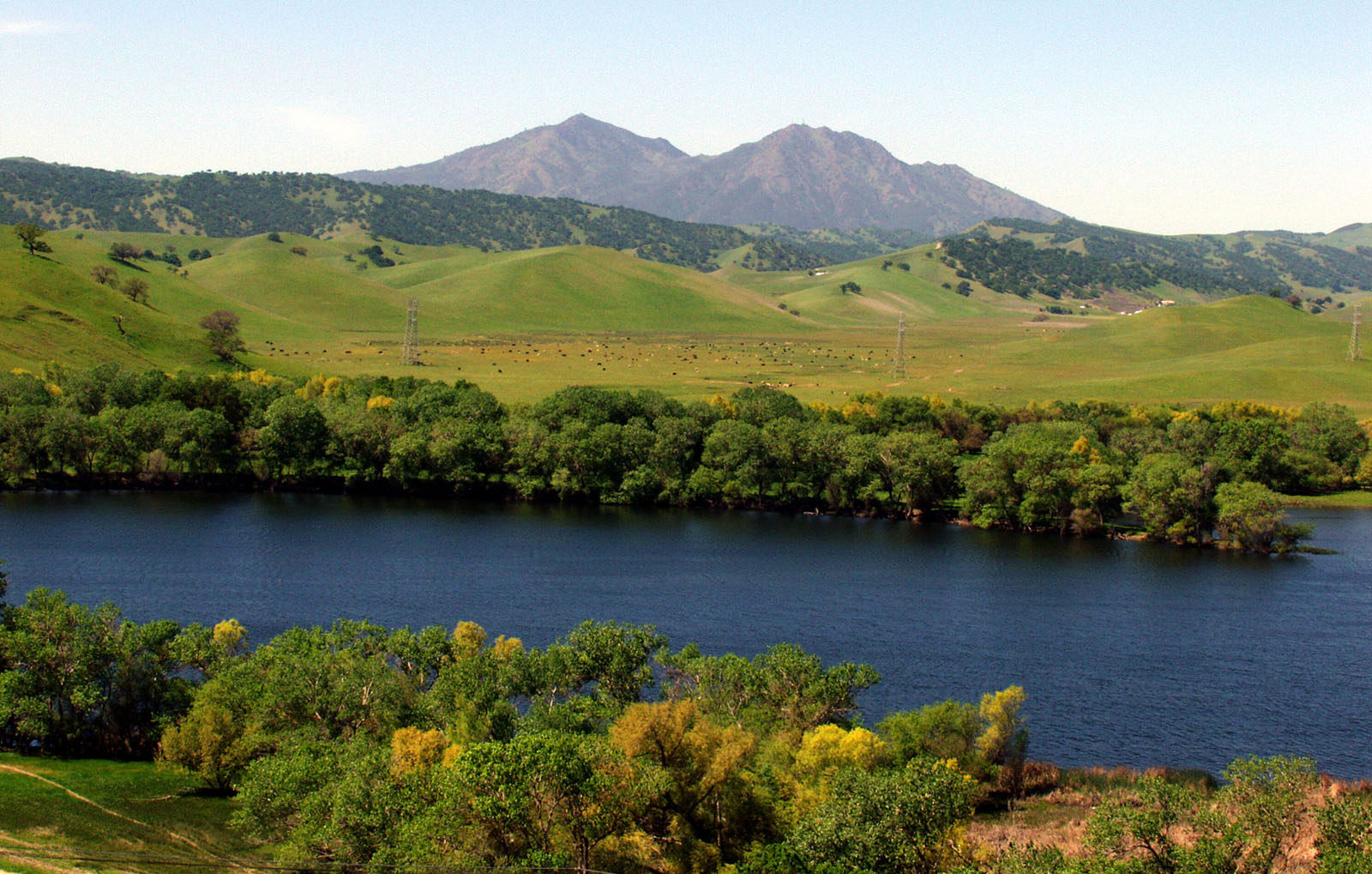
Mount Diablo from Marsh Creek State Historic Park. Photo: Scott Hein
Water policy is important for Mount Diablo and the Diablo Range because hotter, drier, and more intense storm conditions mean we won’t be able to rely as heavily on snowpacks to replenish reservoirs, or our taps, year-round.
California has three times as many rights or allocations to water as what actually exists. However, one of the Department of Water Resources representatives claimed there is about seven times as much groundwater storage capacity as surface storage capacity.
In short, that means we can potentially protect more habitat, and not have to build more or expand our existing reservoirs—like the proposed Del Puerto Canyon Reservoir in Stanislaus County, or the proposed expansion of Pacheco Pass Reservoir in Santa Clara County.
Save Mount Diablo is challenging both these projects because of their negative impacts on sensitive biodiverse lands.
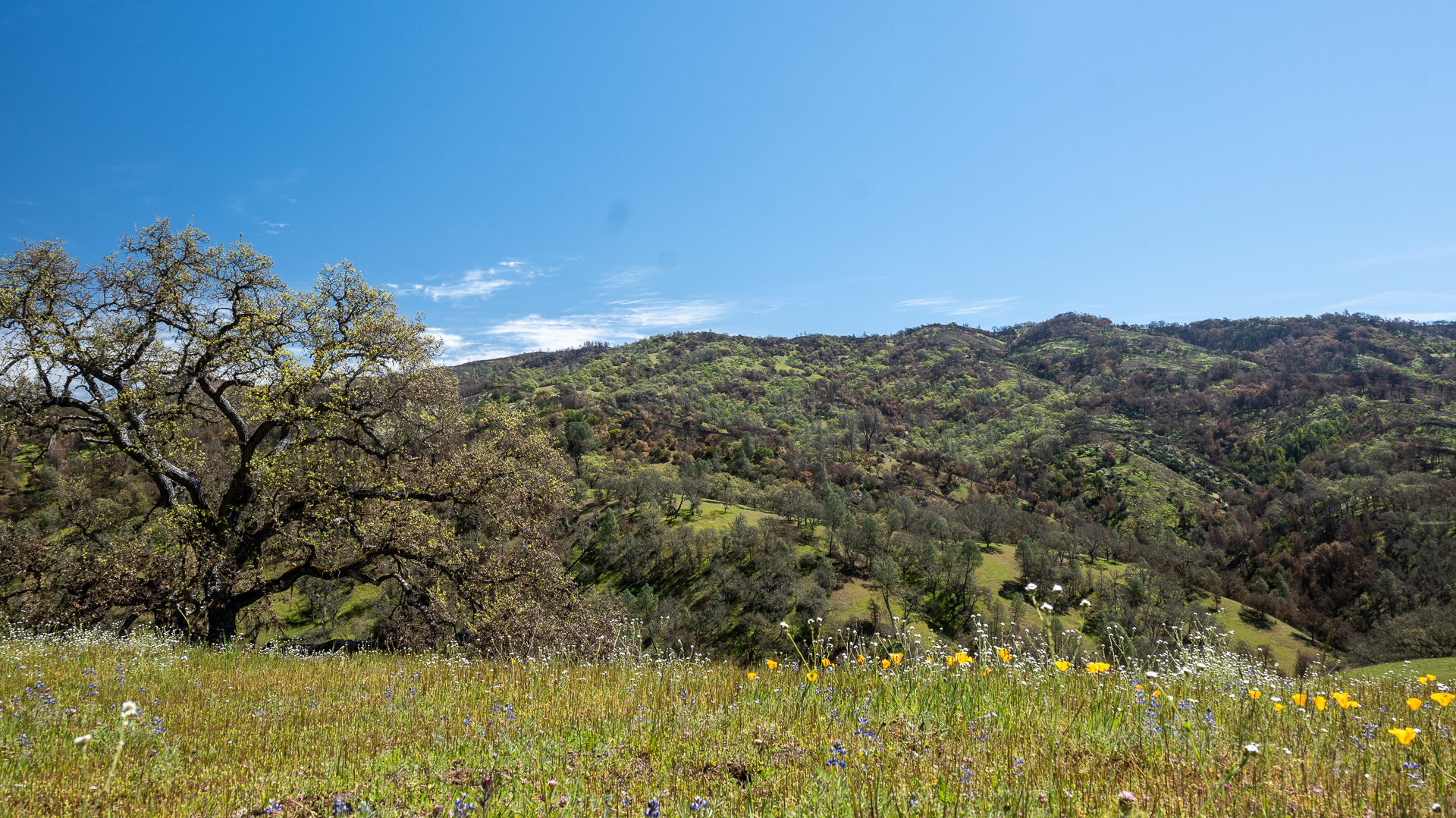
Henry W. Coe State Park. Photo by Bruce and Joan Hamilton
We’re challenging the proposed Pacheco Pass Reservoir expansion because of its negative impacts on Henry W. Coe State Park, part of which could be drowned by the new reservoir.
The panel also discussed new ways of finding “fast paths” for groundwater recharge through resistance measurements. It also discussed how the technology is being implemented across the state from the emerging science coming from Stanford University.
Equity was also a topic of discussion. Maintaining supply for communities throughout California to ensure access to drinkable water for all was heavily emphasized.
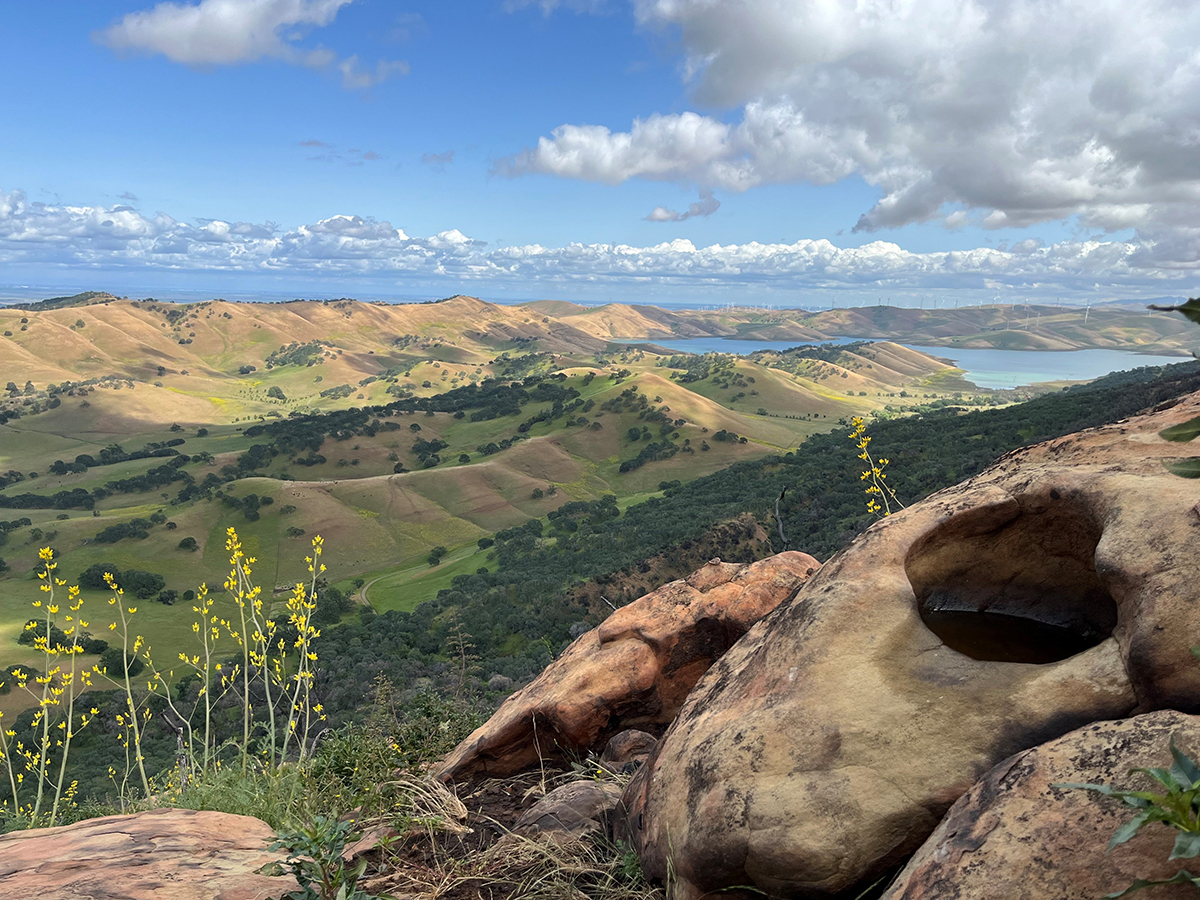
Golden eardrops with a view to Los Vaqueros. Photo by Sean Burke
Saltwater intrusion, drying wells, and pollution may all become more prevalent in our changing climate.
Climate Track
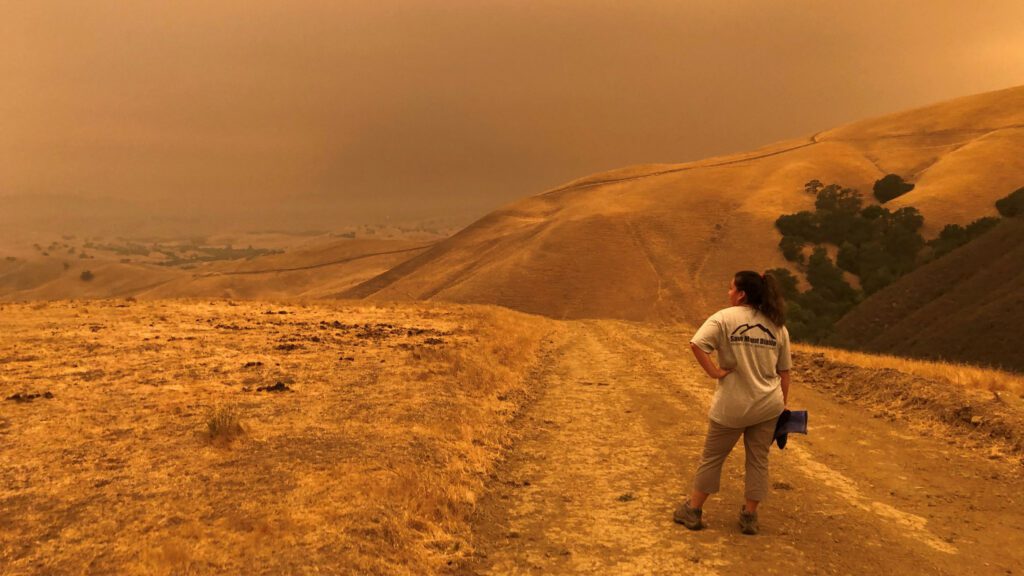
Smoke-filled skies during a megafire. Photo by Sean Burke
Wildfire management emerged as another critical topic. Panelists reflected on lessons learned from recent tragedies, like those on Maui; the lingering effects of Paradise; and the importance of proactive planning to reduce future risks.
Experts also examined how to meet an ambitious 80 percent emissions reduction of methane, a greenhouse gas much more potent than carbon dioxide (but that degrades quicker), by 2030.
The threat of oil and gas exploration and extraction in the Diablo Range is one reason Save Mount Diablo wants to increase protection of key lands and encourage agencies like counties to be proactive.
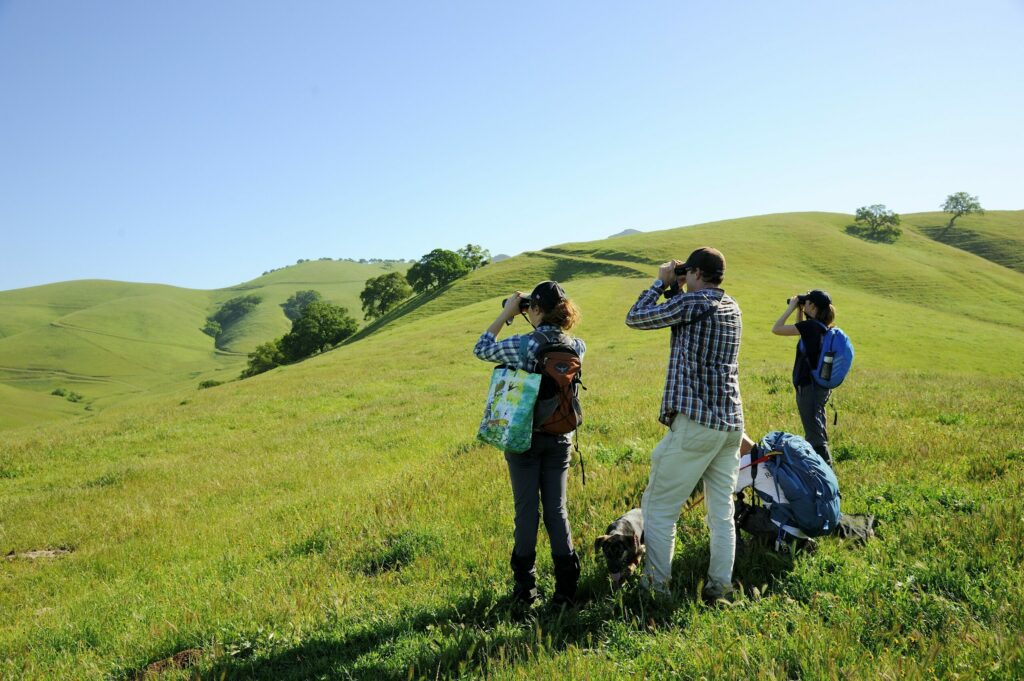
Teaching young people to care for the environment is one of the most important ways to address the climate crisis. Photo by Al Johnson
These agencies need to develop policies that limit fossil fuel activities while also adopting policies for sensitive siting and resource mitigation for industrial scale alternative energy projects that will be needed.
Even Brentwood and Antioch have a large number of supposedly capped oil and gas wells.
Drawing from things we learned at the conference, these wells could be leaking methane into the atmosphere, possibly contributing to the climate crisis. With enough support, we can increase our capacity to confront problems like these.
California Environmental Quality Act Track
The assembly also provided a platform for dialogue on the California Environmental Quality Act (CEQA) and its role in promoting environmental justice and sustainable development.
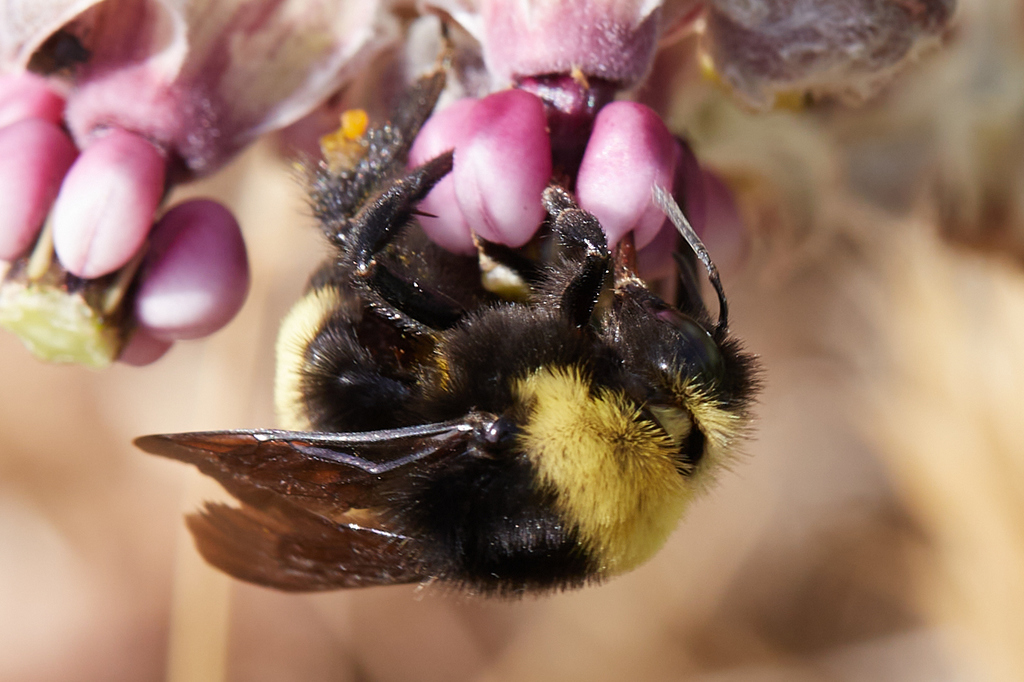
Endangered Crotch’s bumblebee (Bombus crotchii) on California milkweed (Asclepias californica). Photo by Ken-Ichi Ueda
Panelists explored opportunities for reform and enhancement, discussing how to streamline regulatory processes while maintaining robust environmental protections and community engagement.
Save Mount Diablo continues to work with partners like the Planning and Conservation League and CEQA Works to keep the California Environmental Quality Act as powerful as it can.
Our involvement comes through events like the 2024 California Environmental Assembly and ongoing donations. We recently provided CEQA Works with a $5,000 donation.
Save Mount Diablo sees the California Environmental Quality Act as one of the most important environmental policies in the state.
The California Environmental Quality Act is one of the best tools we have to defend land and resources or mitigate impacts of planned development.
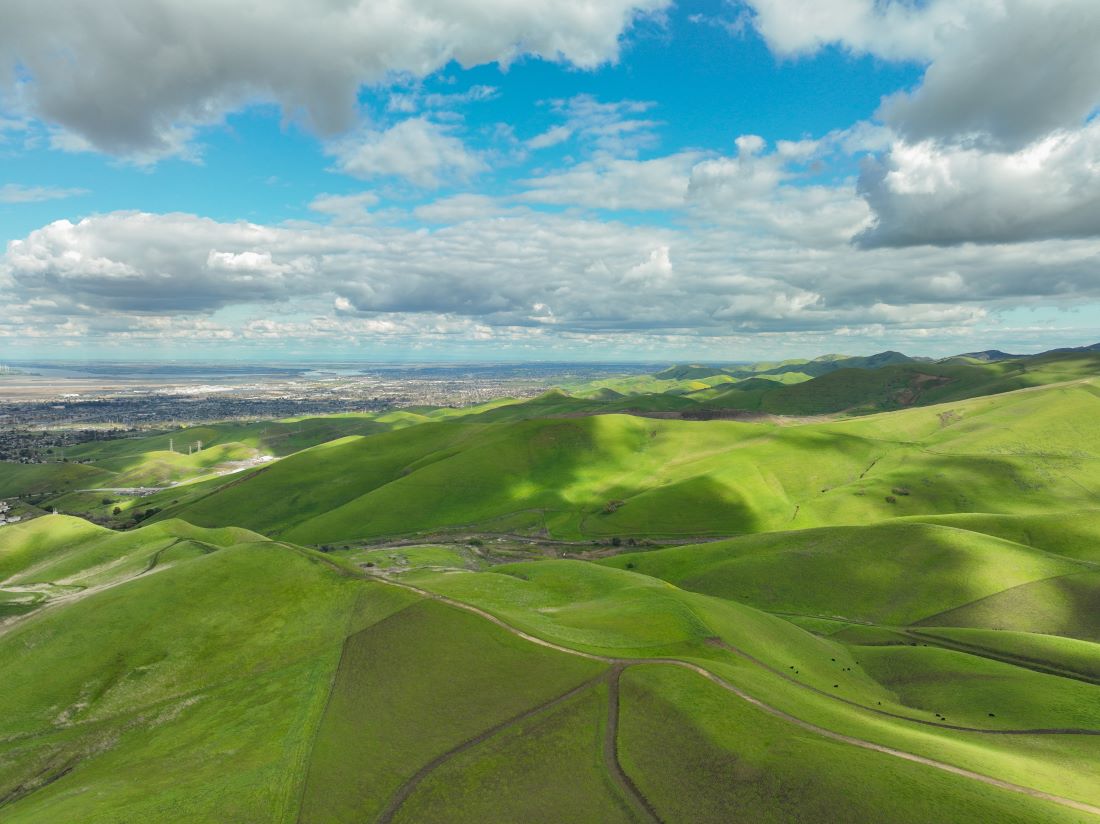
Pittsburg’s hills bordering Thurgood Marshall Regional Park. Photo by Cooper Ogden
As California charts a course toward a sustainable future, the insights and collaborations from the assembly will help Save Mount Diablo and our partners move toward a world where people up, down, and beyond the Diablo Range reach a more sustainable future.

